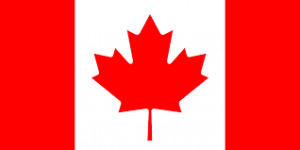PIAC Files Legal Challenge to Quebec Online-Gambling Blacklist Mandate
The Public Interest Advocacy Centre of Canada, known as PIAC, this week filed the first legal challenge against Quebec’s pending implementation of Bill 74, the law that seeks to block offshore gambling sites by mandating Quebec-serving ISPs to blacklist any such domains.
PIAC has filed an initial application with the Canadian Radio-television and Telecommunications Commission [CRTC] asserting that Bill 74 is unconstitutional. PIAC itself is a nonprofit organization that aims to “protect and preserve the public interest” regarding Canadian law.
 That’s where the battle over Quebec’s Rule 74 has always been headed. Bill 74, driven through Quebec’s legislature by the revenue-driven state lottery, Loto-Québec, seeks to create an effective government monopoly over gambling services by blocking the access to the alleged illegal online sites throughout Quebec. Rule 74, though, appears to violate both Canada’s federal Telecommunications Act and various freedom-of-information statutes.
That’s where the battle over Quebec’s Rule 74 has always been headed. Bill 74, driven through Quebec’s legislature by the revenue-driven state lottery, Loto-Québec, seeks to create an effective government monopoly over gambling services by blocking the access to the alleged illegal online sites throughout Quebec. Rule 74, though, appears to violate both Canada’s federal Telecommunications Act and various freedom-of-information statutes.
PIAC’s applicant to the CRTC says it bluntly: “Bill 74’s purported blocking requirement directly conflicts with Section 36 of the Telecommunications Act and is unconstitutional.” The lengthy application, the rough equivalent of a court complaint, asks for an injunction to be issued against Bill 74. Here’s the core of the legal argument PIAC makes:
“Bill 74, purportedly requires any ‘Internet service provider’ [] to ‘block access’ to the proposed list of ‘unauthorized online gambling sites in accordance with s. 260.34 [a subsection of Bill 74’. This provision, as well as the related sections of the QCPA noted above, is in direct conflict with s. 36 of the Telecommunication Act. It is, no matter its intended purpose, ultra vires the Province of Québec, as an attempted exercise of the federal power over the control of content of telecommunications. [] It is unconstitutional on a division of powers analysis.
“PIAC hereby asks that the Commission make an explicit ruling on this aspect of the constitutionality of the purported Québec law and to declare it is unconstitutional. Such a ruling will assist ISPs operating in Québec to determine how to react to this purported Québec law and will allow customers of these ISPs to have continued access to the entire internet free of potential unconstitutional interference from provincial governments.”
Then, under a heading titled “Pith and Substance”:
“Interjurisdictional immunity is not in issue here – the provincial law is directly in conflict with the federal Telecommunications Act []: the pith and substance of the requirement on an ISP to block internet traffic is not the protection of the health and well being of residents nor the control of gaming within the province but, rather, an effort to control the content of telecommunications, a federal power delegated directly to the CRTC in s. 36 of the Telecommunications Act.
“In other words, the dominant purpose of Bill 74’s efforts to block website access is precisely to control telecommunications and content on telecommunications and not health and safety in relation to gambling. That this is so is belied by the fact that the Province of Québec seeks not to ban online gambling but to corral it into a regulatory scheme and in fact into an internet portal (Espace Jeux of Loto-Québec) from which the provincial government can derive fees. Therefore the Province of Québec cannot claim to be exercising an ancillary power under its constitutional authority over local matters (health and safety) in the province.”
PIAC’s filing directly refutes the “public health and safety” charade peddled by Loto-Québec as an illegal money grab. Worse, it creates an unfunded mandate, effectively and forcibly deputizing Quebec’s ISPs to do Loto-Québec’s bidding. Though PIAC is the primary applicant, over 100 Quebec-servicing ISPs are signed on as co-applicants. Virtually every major ISP doing business in the province is onboard the PIAC application, including such giants as Bell Canada, Rogers Communications, Telus Quebec, Acanac, Eastlink, Shaw, Telnet and more.
The complaint by PIAC makes no specific claims regarding the legality or lack thereof of the offshore sites targeted by Bill 74. Rather, PIAC’s application focuses on Bill 74’s own presumptive unconstitutionality under Canadian law.
PIAC issued a brief press statement in conjunction with the filing, which included the following:
The Public Interest Advocacy Centre today filed the attached Part I application regarding Quebec Bill 74, Loi concernant principalement la mise en oeuvre de certaines dispositions du discours sur le Budget du 26 mars 2015, and blocking of certain websites associated with online gambling.
The application argues that Bill 74 is outside Quebec’s jurisdiction by attempting to encroach on federal jurisdiction over telecommunications. The bill is also inconsistent with past CRTC decisions on website blocking under the Telecommunications Act and infringes on the constitutional right to freedom of expression.
“Bill 74 sets up a dangerous precedent where internet service providers would be responsible for policing the websites their customers access,” said John Lawford, Executive Director & General Counsel to PIAC. “If this is allowed, where will it stop?”




















COMMENTS